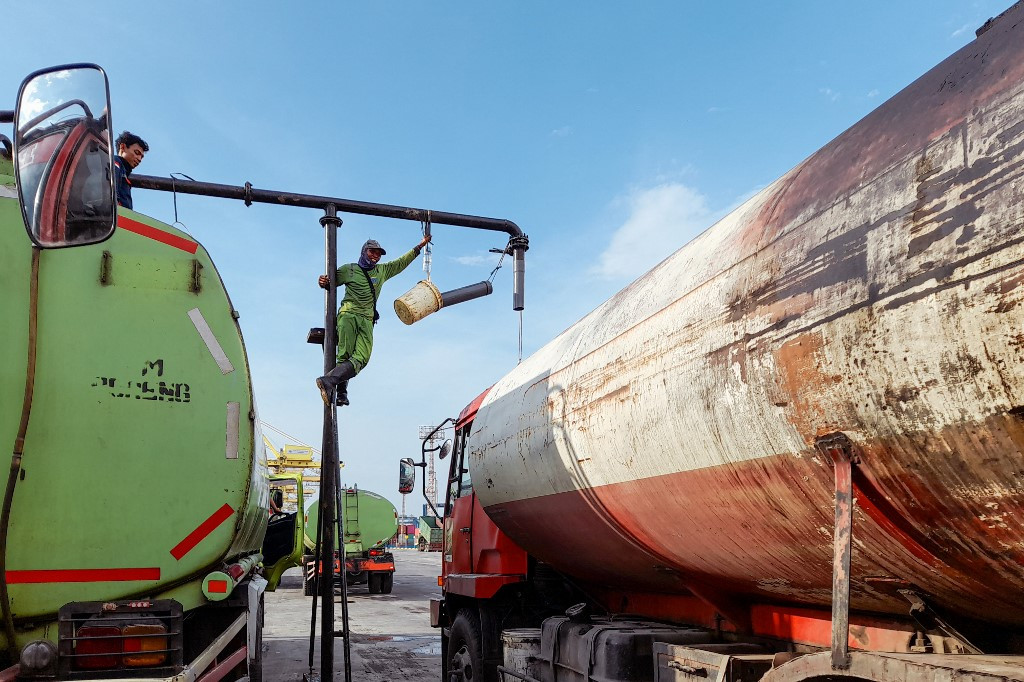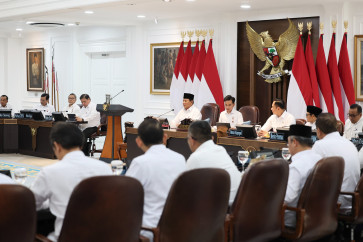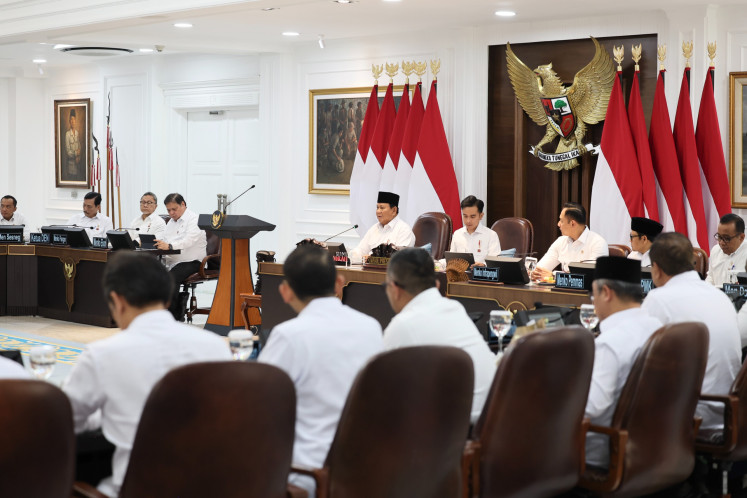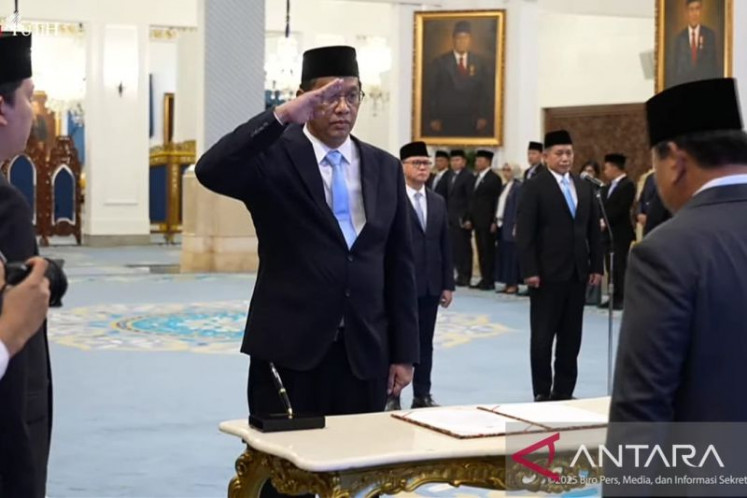Popular Reads
Top Results
Can't find what you're looking for?
View all search resultsPopular Reads
Top Results
Can't find what you're looking for?
View all search resultsTrade surplus narrows on ‘ending’ commodity windfall
Indonesia’s trade surplus shrank in July but exports still exceeded imports for the 27th month in a row.
Change text size
Gift Premium Articles
to Anyone
I
ndonesia’s trade surplus has shrunk as lower CPO prices weighed on exports while high oil prices drove up imports, data for July show.
In a press briefing on Monday, Statistics Indonesia (BPS) reported that the country's trade surplus shrank to US$4.22 billion, down from $5.09 billion in June, but July nonetheless marked a 27th consecutive month in which Indonesia exported more than it imported.
The figure exceeds forecasts from state-owned Bank Mandiri and financial research firm Moody's Analytics, who had projected a trade surplus of $3.85 billion and $3.7 billion, respectively.
"The export volume of Indonesia's main commodities is generally stagnating, given that some international commodity prices have begun to decline; we need to watch our trade balance in the months ahead," BPS deputy head Setianto told reporters.
The press briefing came a day before President Joko "Jokowi" Widodo was scheduled to present the government’s budget policy for fiscal year 2023.
Exports grew 32 percent year-on-year (yoy) to $25.57 billion, slowing down from annual growth of 40.99 percent recorded in the preceding month. Imports, meanwhile, increased 39.86 percent yoy to $21.35 billion, reflecting a strong increase in consumer spending compared to last year, when coronavirus containment measures curtailed public activities.
Bank Mandiri had forecast annual export and import growth of 23 percent and 31 percent, respectively.
Trade was a significant factor in Indonesia's estimate-beating GDP in the second quarter of 2022, where net exports contributed 2.14 percentage points to overall economic growth of 5.44 percent.
Higher prices for coal and crude palm oil (CPO), two of Indonesia’s foremost export commodities, provided a fiscal lifeline in recent months as the government spent more on energy and food subsidies to protect the domestic economy from imported inflation.
Read also: Indonesia shines amid global gloom with forecast-beating GDP
However, BPS warned that the windfall from high global commodity prices was ending as exports decreased 2.20 percent month-to-month (mtm) amid declining prices of key commodities.
Exports of manufactured goods, while up 18.12 percent yoy, fell 4.45 percent from the previous month to $17.44 billion in July.
Oil and gas exports fell by 11.24 percent mtm to $1.38 billion, as crude oil and natural gas prices decreased 10.03 percent mtm and 5.45 percent mtm, respectively. In annual terms, oil and gas products saw a 40.48 percent increase.
Outbound shipments of mining products, meanwhile, were up both on the year and the month with growth of 92.13 percent and 6.61 percent, respectively, thanks to higher coal prices in July.
CPO shipment volumes were down an annual 12.23 percent in July. At the same time, CPO prices are far off their March peak as economic slowdown in many countries reduced demand. The price of the commodity was down 0.60 percent yoy and 29.61 percent mtm at $1056.6 per ton in July.
"Perhaps this is concerning, as it is a sign that the commodity price windfall is ending," Setianto continued.
Read also: Economists warn against overreliance on coal, CPO
Imports increased by 1.64 percent mtm in July in an uptrend experts estimate will continue in the medium term amid relaxed COVID-19 restrictions.
Raw material imports were up 44.49 percent yoy and 2.90 percent mtm at $16.70 billion in July, while oil and gas imports, which are counted separately, increased 148.38 percent yoy and 21.30 percent mtm to $4.46 billion.
Although a survey published by Bank Indonesia (BI) last week showed that consumers were still “optimistic” about the economy, their optimism had diminished for the second month in a row as inflation hurt their purchasing power.
Economists from Bank Mandiri point to retreating commodity prices and weaker demand from China due to the country’s zero-COVID policy as factors weighing on Indonesian metal exports.










